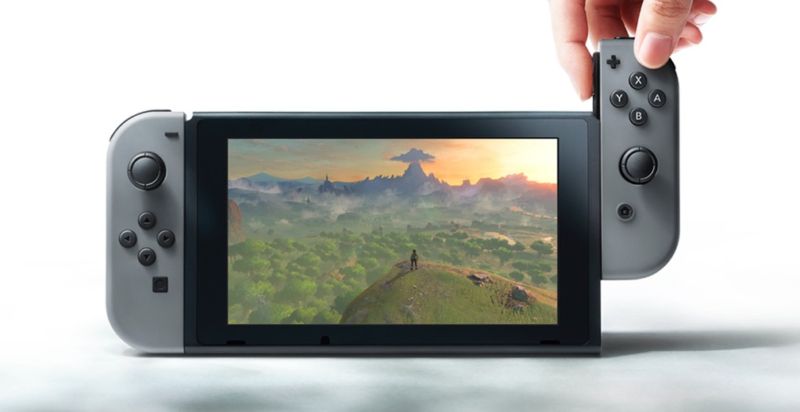The Nintendo Switch

Is there a nerd who hasn’t felt the sweet breath of obsessive-compulsive disorder whisper in her ear as she is forced by the cruel demands of life to quit her gaming den to sleep and/or go to work: I wish I could keep playing in bed and/or on the subway. That voice does not encourage you to just play a different game on your phone on the subway, it wants you to keep playing this game on the subway, which of course is never possible.
Nintendo understands this more than most companies, having for decades produced both portable and home consoles, yet only now producing one that is both at the same time.
The Switch feels like a remix of everything Nintendo’s ever made. It’s physically similar to the failed Wii U GamePad, as it’s a games-specific tablet. The slide-off “Joy-Con” controllers are motion-sensitive like the Wii Remote, yet physically evoke the tiny NES gamepads. The tablet screen is touch-sensitive, like that of the DS and 3DS.
From the pictures before the launch, I couldn’t really place the size of the thing. I knew it had a 6.1” screen which didn’t sound that big… my phone’s is 5.5”. Yet in hand, it’s much larger. It’s more the size of an iPad Mini, except thicker and more squat. Compared to Apple engineering, it feels clumsy, or amateurish: too thick, too heavy, too much bezel, too much plastic. Yet of course your hands are given space away from the screen, making the viewable area bigger compared to using a phone.
I’ve had it only a couple weeks, and already I am in love. The convenience of this thing is unparalleled. Let alone taking it out of the house, it’s really handy in the house as well. We don’t have a TV in our tiny living room; it’s in the rec room in the basement. I love playing down there, but there are times where it doesn’t make a certain kind of sense to go down there (killing ten minutes while cooking, waiting to make sure the kid has settled), let alone those times when someone else is using the TV.
The Switch is by nature a compromise device, sitting somewhere between portability and immersion. That it never feels like it is remarkable. That compromise is instead its very essence, cleverly captured by its name and brand identity.
It feels fetishistic to discuss a console without talking about the actual games, and the only one I have so far is Zelda, so I will move on to that in the next couple days. But a quick word first! Nintendo’s historical weakness is third-party software. They come up with quirky, underpowered hardware, so unlike their competitors’ machines that third party publishers either dial in low-quality ports (Wii), or ignore the platform altogether (Wii U). Traditionally, they make up for it with stellar first party titles (Mario, Mario Kart, Zelda, Metroid, Fire Emblem, Pokemon, etc. etc.). I’m sure that will continue to be the case, but the really encouraging thing is the developing slate of indies. Sounds like the Switch is easier to develop for, and Nintendo is doing a better job of talking to independents, so if this keeps up it could be a pretty good situation.